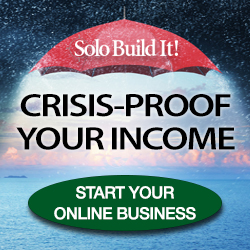
- HOME
- Survival Skills
- Bartering Skills
Learn Bartering Skills For
a Post-Disaster Scenario

Have you ever heard the story of Kokopelli? He may well have been the first to barter as well as the first salesman.
One legend describes him as a trader who traveled from tribe to tribe bartering and trading trinkets and foods from all the varied Indian tribes around the country.
Many believe that Kokopelli was not just a trader but a storyteller as well as a messenger, bringing information and news gathered from other tribes. Also somewhat of a musician, Kokopelli announced his arrival (securing his identity and safety) by playing his flute as he approached a community.
Invest in emergency food storage now and enjoy peace of mind for the next 25 years. Don't miss out on the savings!
He had other "talents" (being a fertility god) but that part of the story would take us WAY off topic.
With no need for a flute now days, bartering may be necessary in a post-disaster scenario. Just imagine a disaster situation where it might be the only means of acquiring necessities - just ask the people of Venezuela.
Picture some natural disaster, such as an earthquake or hurricane, where most everything is broken or wiped out. The stores will be closed. Electricity will be interrupted. Most everything would stop in today's technologically-dependent world.
Or imagine hyperinflation where it takes megabucks to buy even a gallon of milk. It could be temporary or long term.
In any of those situations, there will be those who need items and those who have them. How do you prepare your family with every single necessity? For most of us, I don't believe it's really possible to stock every needed item.
So bartering could, in these situations, become a normal way of life — food, water, and shelter being the most important.
Items to Stock for Bartering
The list could be endless because, as you are well aware, we use so many different items every single day — some are necessities — some are not. So where do we start?
Here's a list to start the thinking processes, but I'm sure you can come up with many other items as you interact with your own possessions throughout a day or week.
Allergy medicine
Aloe
Aluminum foil
Animal traps
Antacids
Antibiotics
Anti-histamines
Antiseptic
Apple cider vinegar
Aspirin
Baby formula
Baby wipes
Baking powder
Baking soda
Bandages
Bar soap
Batteries
Belts
Bicycle parts
Bleach
Bolts
Buckets
Bug spray
Can openers
Candles
Canned food
Canned shortening
Canning jars/lids
Clothes line/pins
Coffee
Coffee filters
Coleman fuel
Combs
Condoms
Cooking oil
Cups
Dental floss
Diapers
Disposable gloves
Dried soup mix
Feminine products
Fire extinguishers
Fire steels
First aid kit
Fishing gear
Flashlights
Flour
Glasses repair kit
Gloves
Hairbrushes
Hammers
Hand sanitizer
Hard candy
Honey
Hydrogen peroxide
Imodium A-D
Iodine
Jerky
Kerosene
Kleenex
Knives
Lamp oil
Lantern mantles
Lighter fluid
Lighters
Lotion
Magnifying glasses
Maps
Matches
Measuring cups/spoons
Milk, powdered
Mousetraps
Mouthwash
Multivitamins
Mylar bags
Nail clippers
Nails
Needles/thread
Nuts
Nylon rope
Paper
Paper plates
Paper towels
Paracord
Paraffin wax
Pasta
Peanut butter
Pencils
Pens
Pepper
Pepper spray
Pet food
Plates and bowls
Ponchos
Popcorn
Pots and pans
Q-tips
Rat poison
Razors
Reading glasses
Rice
Rubber bands
Rubbing alcohol
Safety pins
Saline solution
Sand paper
Scissors
Screw drivers
Screws
Salt
Seeds
Shampoo/conditioner
Sharpening stones
Shaving cream
Shoe laces
Slingshots
Socks
Space blankets
Spices
Sponges
Staples
Sugar
Sun block
Sunglasses
Super glue
Survival books
Syrup
Tape
Tarps
Tea
Thermometers
Toilet paper
Tools
Tooth brush
Toothpaste
Trash bags
Tuna fish (in oil)
Tupperware
Tweezers
Twine
Underwear
Utensils
Vaseline
Vinegar
Watches
Wax paper
Wicks
Wire
Yeast
Ziploc bags
Alcohol and Tobacco
You might wonder about stocking alcohol and tobacco for bartering. It would depend on your personal views about these products, but those who are addicted to these substances are out there and would gladly trade useful items to support their addictions.
Weapons and Ammunition
I have read several opinions about bartering weapons and ammunition and all I have to say about these items is: be very careful. Yes, they could be VERY useful items to barter with — either buying or selling. But use caution so that you do not become a victim when trading weapons. It would probably come down to the ability to trust others. Can you trust a stranger? Maybe. I would definitely trust a person that I know well ("know well" being the most important criteria).
Ammunition would be safe to trade and, depending on the particular crisis, most likely would be in high demand. Since we humans have a strong natural instinct to survive, some may even trade food for ammunition if they feel sufficiently threatened.
Advantages of Bartering in a Non-Disaster Scenario
After a disaster isn't the only reason to barter for goods. In reality, bartering probably takes place every day somewhere — just because it works for many people. It has advantages, like:
- No money is needed.
- Exempt from sales tax (Although there are some laws associated with this kind of exchange. Check with your state.)
- No markup, overhead or profit tacked onto the transaction.
- One person's junk is another's treasure (clean out your "stuff").
- Builds relationships with friends and neighbors — visit their garage sales, hold your own.
- You control your own business transaction, including value, marketing methods, and results.











